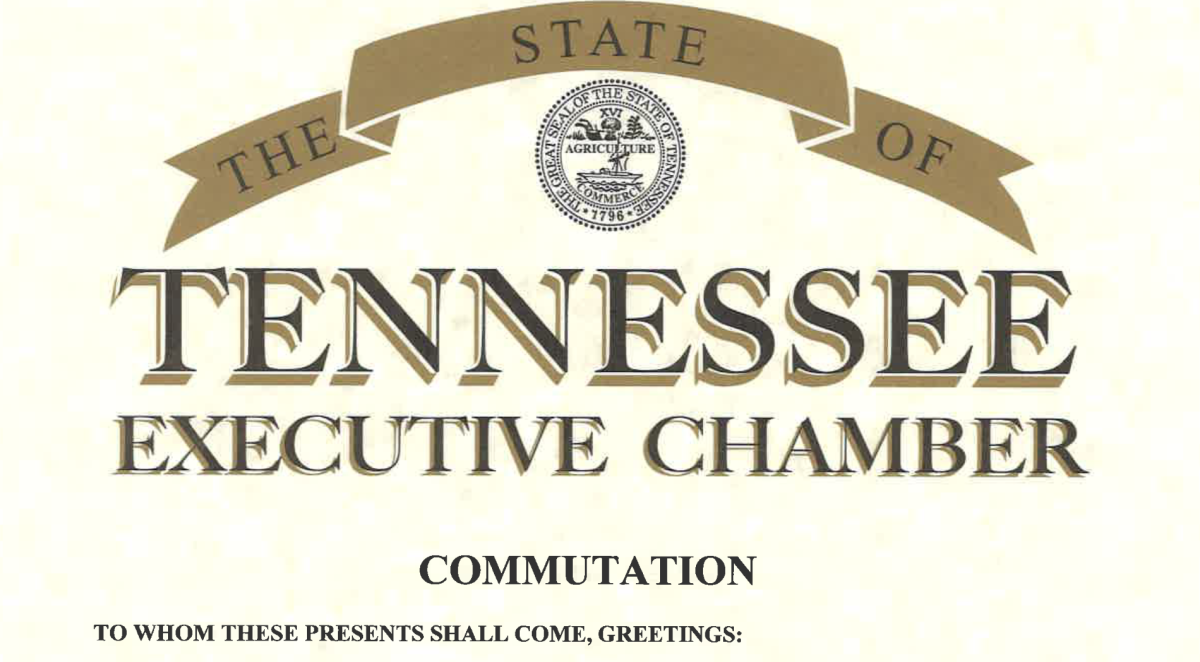by Sharon Rondeau

(Dec. 21, 2022) — Tennessee inmate Kristina Cole has been granted a commutation of her 13.5-year sentence for allegedly taking part in a scheme to distribute methamphetamine in a drug-free zone in early 2016, according to a press release issued Thursday from Gov. Bill Lee‘s office.
Cole was one of 30 individuals to whom Lee granted “expedited parole eligibility in accordance with updated state law” through commutation, the press release indicates, while 16 others received “executive clemency.”
Of those receiving the latter, 13 received “pardons.”
“In light of recent updates to Tennessee state law, I have made the decision to grant parole eligibility to certain low-level drug offenders who merit consideration for an expedited review of their sentence,” Lee stated for the press release. “Each parole hearing will be considered individually, and the Board of Parole will determine the appropriate outcome.”
An official Commutation declaration from Lee’s office reveals his legal rationale for granting Cole executive clemency:
WHEREAS, in September of 2017, in the Criminal Court for Shelby County, Tennessee, Kristina Cole (TOMIS #583144) was convicted of two counts of possessing schedule II drugs with intent to sell in a school zone (case no. 1701568). Ms. Cole received a thirteen-year sentence, including a sentence enhancement for the violation of Tennessee’s drug-free school zone statute, Tenn. Code Ann. § 39-17-432;…
After Ms. Cole’s commission of the offenses, the Tennessee General Assembly amended the drug-free school zone statute by changing the circumstances in which enhanced sentencing may apply. The circumstances of Ms. Cole’s offenses do not appear to warrant enhanced sentencing under the drug-free school zone statute as amended.”
The Declaration states that Lee’s commutation of Cole’s sentence “makes her eligible for parole consideration by the Tennessee Board of Parole.”
“Commutation to parole eligibility” is defined in the document as “a decision to expedite parole eligibility for an individual based on the unique merits of their case. The Board of Parole will hold a hearing in the normal course. This does not mean a person will be released from prison, and it does not guarantee that parole will be granted.”
Throughout her incarceration, Cole appealed her sentence and filed a post-conviction petition and appeal. In April, an appellate court reversed and remanded Cole’s post-conviction petition to the trial court, with Judge Robert “Bobby” Carter, Jr., the sentencing and initial post-conviction judge, presiding.
In August, Carter opined he did not find Cole’s argument convincing that her trial counsel was “deficient” in her defense. Shortly thereafter he retired.
Cole was a co-defendant to Jason Lamar White, who is incarcerated on a 60-year sentence without the possibility of parole meted out by Carter despite the non-violent nature of his alleged participation in the purported drug distribution conspiracy. White denies involvement and has expressed his opinion that Cole was not benefiting from effective assistance of counsel in her ongoing appeals.
The legislature’s alteration of the statute applicable to Cole took effect on September 1, 2020.
Early Thursday evening, The Post & Email contacted Kimberly White, Jason White’s mother, who has closely followed Cole’s case along with her son’s, to ask if she were aware that Cole had petitioned Lee for clemency. She responded that she learned Cole did, in fact, apply for clemency on her own behalf, without the assistance of an attorney.
We also sent an email to the media contact provided on the press release to ask whether Lee or the Parole Board has the “final word” on the indicated commutations. We will update this article if and when a response is received.
Update, 8:00 p.m. EST: In our communication with Lee’s media contact, we wrote, “Hello, on Gov. Lee’s press release today regarding commutations and clemencies, does he or the Parole Board have the final word?” and received the following response:
Clemency is an executive action. The Governor considers a number of factors in each case, including recommendations from the Board of Parole.

